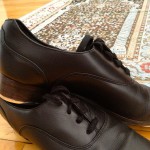I’m a resident in Internal Medicine at the University of Toronto and, on July 2nd, I started my first shift as a doctor. It was a 26-hour shift that included a night jam-packed with running between sick patients while thumbing through my textbook to make sure I didn’t miss an important investigation or treatment. As a resident, the amount of time I spend in the hospital is rarely under my control. The week is often long, occasionally upwards of 80 hours. My training program sure knows how to throw us straight into the deep end.
The transition from medical student to resident feels a little intense. I didn’t get any smarter from one day to the next, but now have an enormous amount of power and responsibility. Sure, there are residents with a year or two more experience just a phone call away. But when crap hits the fan and a patient gets acutely ill, I hope I’m competent enough not to make critical mistakes. Part of the learning curve is developing clinical judgement and I’d really prefer not to do that at the expense of a patient’s health.
I swear, my anxieties aren’t baseless. Some staff physicians and nurses nervously chuckle about “The July Effect,” a phenomenon that suggests hospitalized patients experience higher rates of morbidity and mortality as a result of all those new MDs starting their residency at the same time. Fortunately, recent research suggests the effect is likely not that dramatic, but it’s hard to deny that patient care may not be optimal in July. Mistakes are more likely to get made. Issues can get missed. Good care just takes longer to provide.
With all of this weighing on me, I made an explicit decision not to fast this Ramadan. I grew up fasting with my family every year, without fail. I still remember our daily pre-dawn routine, my mother jostling my brother and me to wake up in time for a bite, while I suggested I’d be fine fasting without a proper breakfast. But that was way back in the day when Ramadan fell in the heart of the Canadian winter, only about 10 hours from sunrise to sunset. In Toronto now, time for Suhoor ends at 3:30 am and Maghrib falls around 8:55 pm, a fast that totals over 17 hours. That’s a long time without food and water. Let’s be honest; my brain has a hard time functioning without caffeine. Without a mid-day meal and adequate hydration, it’s practically mush. Knowing full well I’m already error-prone, I can’t possibly fast and still provide patient care optimal to my capacity.
My step-dad seems to think he should fast under all circumstances, come hell or high water. He works 12-hour shifts, managing a propane station and his Type 2 Diabetes. Despite that he is exempt from fasting, my step-dad thinks God will protect him from episodes of hypoglycemia and a possible coma. I, on the other hand, am not so sure.
Part of fasting, I think, is accepting the reality that our bodies will slow down in the absence of sustenance. Slowing down, in and of itself, is the annual gift. In that way, Ramadan always anchored the reset button in my life. The discipline inherent in fasting gives me 30 days to be deliberately conscientious about the space and place God takes within my day and fills my spiritual tank. By the time I’m running on empty, nearly a year has gone by and the next Ramadan is creeping up quick.
Yet, in this new life as a resident, my life is not entirely my own and I can’t slow down. I have memories of my Ramadans as an elementary school kid in Saudi Arabia. Schools ran shortened schedules. Retail and grocery stores stayed closed for most of the day. Most people cut their working hours and often limited them to after iftar. In the context of the Western world, where the vast majority of the population doesn’t observe Ramadan, I have a hard time justifying a spiritual practice that may detrimentally affect the quality of clinical care I provide to others. In the absence of a health issue, I get that I’m not exempt from the religious obligation to fast according to most Islamic thought. At the same time, I have specific performance obligations to the training program that hired me and, more importantly, particular care responsibilities to the patients I see.
This month, I’m redefining the parameters of my practice. While I’ve decided not to fast, I still need to refill my proverbial tank. Yes, I’m spending a little extra time on prayer and remembrance, even if it’s on the 20-minute bus ride into work. I’m trying to recite my tasbih climbing the stairs. I’m saying a quick “Bismillah” before I review a patient’s chart. But shoving a little bit of Arabic into my day-to-day life doesn’t feel like it does Ramadan justice. Instead, I also want to think deeply about the kind of patient care I want to provide.
My mother always underscored that our devotion to God is truly reflected in our devotion to humanity. If I’m spending so much time in the halls of the hospital, it’s also time for me to start thinking about my clinical practice as a parallel to my spiritual practice. No, I will not be walking into patient rooms trying to convert people to Islam. I am bound by fard, however, to treat each patient with deep love and compassion. I’m also obligated to be honest about the boundaries of my expertise and exercise humility in the face of my limitations. Maybe by the time Ramadan falls in the Canadian summers again, I’ll be old hat at this Internal Medicine thing and fasting won’t compromise the patient care I provide. Until then, at least in my world, Ramadan will likely look a little different.
For more on MMW’s Ramadan series, and to read the rest of this year’s Ramadan posts, click here.












